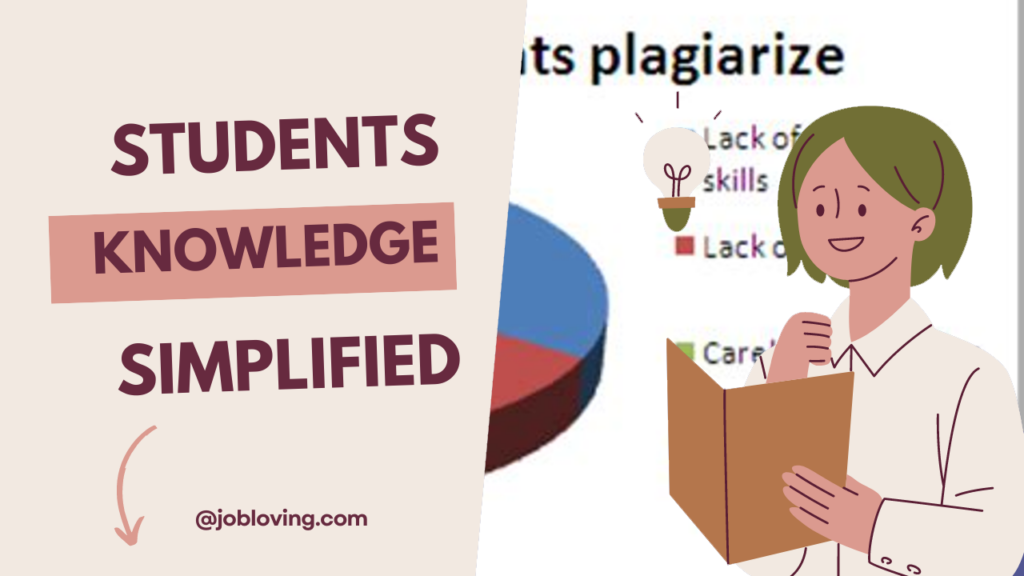The long-standing concern surrounding academic dishonesty has recently taken the spotlight, particularly within college campuses where pressure to succeed is palpable. Here’s a look into the alarming statistics surrounding how many college students dabble in the murky waters of plagiarism, which could leave even the most relaxed professors shaking their heads.
A staggering 80% of college students confess they’ve cheated at least once during their academic journey, according to The Center for Academic Integrity. Dig a little deeper, and what you’ll find is even more troubling: the Psychological Record found that about 36% of undergraduates admit to plagiarism specifically. This isn’t just a college phenomenon; educational institutions everywhere are battling this surge of ethical dilemmas.
Cheating isn’t just limited to plagiarizing from papers or essays — it’s a broad spectrum that turns students’ academic lives upside down. Approximately 54% of students have reported pilfering information directly from the internet, showcasing a trend that points directly to the rise of easy online access. The technology-savvy generation of students seems to find it all too easy to gather and regurgitate material without a second thought about citation or originality.
What’s perhaps even more worrying is that many students feel a lack of accountability regarding their actions. A striking 90% of students believe that cheaters rarely face consequences beyond a slap on the wrist for academic dishonesty. This creates a dangerous environment where cheating and plagiarism become normalized as strategies for achieving success. It seems that many students operate under the assumption that as long they don’t get caught, they won’t have to worry about the repercussions.
The problem is compounded by the inaction and complicity of faculty members; in fact, 55% of faculty are hesitant to document cheating incidents among their students, feeling somewhat powerless to combat pervasive dishonesty despite being aware of its prevalence. This lack of action not only perpetuates a culture of silence around the issue but also fosters an environment where students believe their unethical behaviors will go unpunished.
A generational trend also seems to be influencing the current wave of academic dishonesty. For instance, high school students, who bleed into the college sphere, reported a shocking 97.5% cheating rate in the late ’80s, a significant uptick since 58.3% in 1969. It’s a troubling legacy that students carry forth; with 95% of surveyed college students admitting they’ve cheated in some capacity, it’s evident that academic integrity is more than just a guideline — it’s an arena where tensions run high, and guidelines are largely ignored.
Delving deeper into the psyche of these students, one might ponder how they justify their actions, particularly in classes they don’t enjoy. Cheating appears not only as a shortcut to grades but a coping mechanism for many navigating the demanding landscapes of academia. It’s a moral conundrum—students rationalizing plagiarism while recognizing its ethical implications.
Though the data paints a bleak picture, it brings awareness to the pressing need for educational institutions to reassess their strategies and commitment to reinforcing academic integrity. The stakes are incredibly high; what students do in college doesn’t just affect their grades—it shapes their professional futures. While the numbers might be disheartening, this serves as a call to action. Promoting ethical practices can foster a culture of authenticity and integrity, where the shackles of plagiarism can finally be broken.
In essence, it’s time to wake up to the reality of plagiarism in academia. With a blend of accountability, understanding, and robust institutional support, perhaps we can tilt the scales back toward integrity. After all, in the grand tapestry of education, shouldn’t the threads be woven with honesty and originality?
What underlying factors contribute to the high rates of plagiarism among college students?
The high rates of plagiarism among college students stem from a combination of factors, including a perceived lack of accountability, the belief that cheating is rarely punished, and the growing reliance on internet resources. Additionally, many students rationalize their dishonest behaviors, viewing them as necessary to maintain competitiveness in their studies.
How does the culture of academic dishonesty in higher education reflect broader societal issues?
The culture of academic dishonesty in higher education mirrors broader societal issues related to ethics and accountability. As students witness widespread cheating and a lack of consequences, they may internalize these behaviors, leading to a normalization of dishonesty that extends beyond the classroom.
What role do faculty and institutional policies play in addressing plagiarism?
Faculty and institutional policies significantly influence the handling of plagiarism. Many educators feel unsupported in taking action against cheating, leading to a reluctance to document incidents. This lack of institutional commitment to addressing academic dishonesty perpetuates a cycle where students feel emboldened to cheat without fear of repercussions.
In what ways can promoting ethical academic practices impact student behavior regarding plagiarism?
Promoting ethical academic practices can foster a culture of integrity and originality among students. By emphasizing the importance of authenticity and providing resources like plagiarism checkers, institutions can help students understand proper citation practices and the value of original work, ultimately reducing instances of plagiarism.

